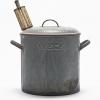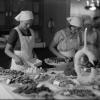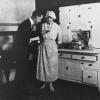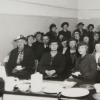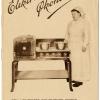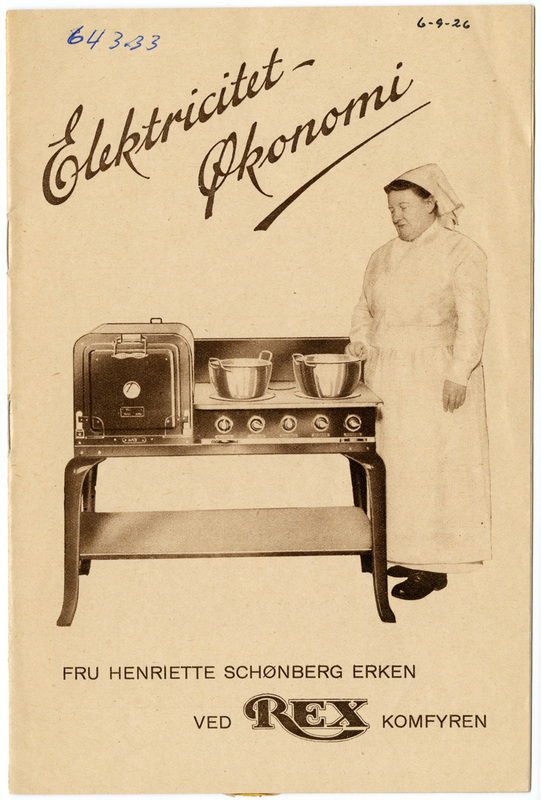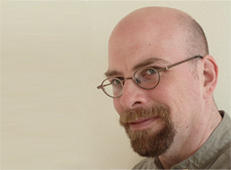Home economics away from home: 'home economist' as a profession
Though it was meant to help women work in the home, home economics actually helped create careers for women like Henriette Schønberg Erken outside their homes.
From the earliest years, home economics schools had trained lower-class women to be domestic servants (one reason for this was to keep them out of less reputable trades). However, better-educated "home economists" increasingly began to enter into employment.
Some home economists like Erken (1866–1953) in Norway, acquired celebrity status. Trained in catering schools, she founded one of her own on her farm in 1908 and soon authored one of the best known cookbooks in the country. Her celebrity status also made her a sought-after endorsement for commercial products
In Britain, Marguerite Patton (b. 1915) had been a home economist for the electricity board (and briefly a stage actress). She rose to fame when she was hired by the Ministry of Food to help women deal with wartime-rationed food. She also presented a regular radio program and after the war became Britain's first TV chef.
Beyond these "celebrities," trained home economists began to find work as testers and demonstrators of appliances, as dieticians for hospitals, leaders of industry canteens, and a wide range of other professions outside the home.
 Previous Story
Next Tour
Previous Story
Next Tour
How to cite this page
Alexander Badenoch, 'Home economics away from home: 'home economist' as a profession', Inventing Europe, http://www.inventingeurope.eu/daily-lives/home-economics-away-from-home-home-economist-as-a-profession
Sources
- Papanelopoulou, Faidra. "Between Production and Consumption? The International Federartion of Home Economics, C. 1908-1960." ISES Seminar paper, Eindhoven University of Technology, 2011.





